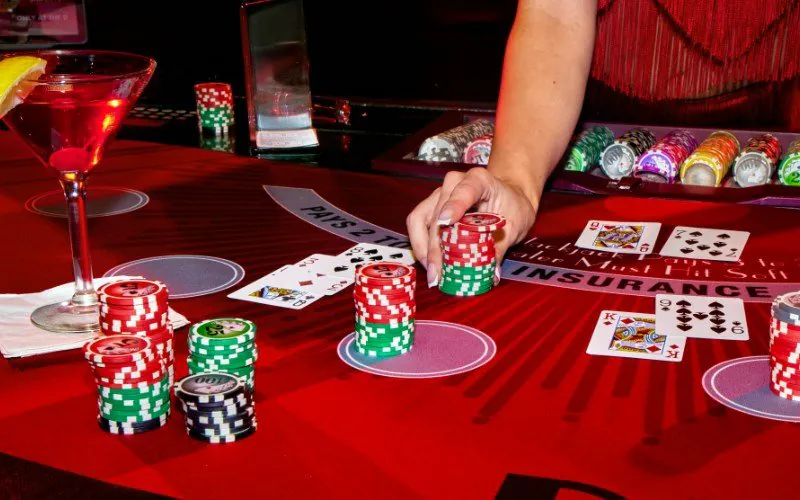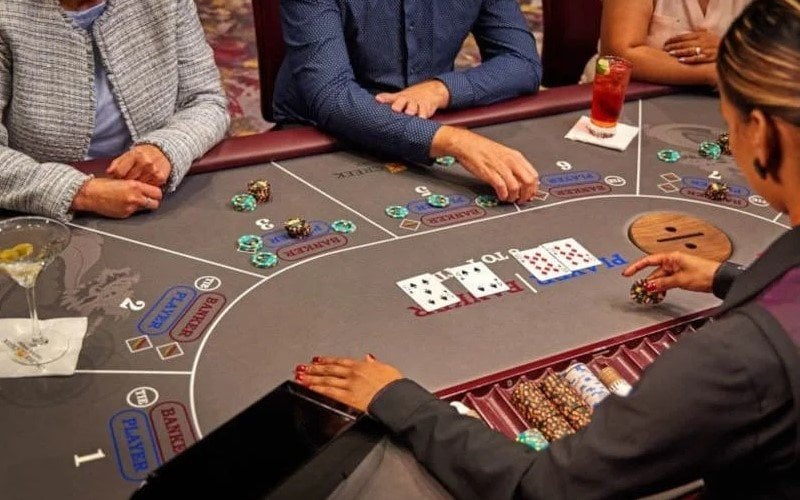The obvious areas include when you are losing, or the build-up and anticipation of what may happen.
We all react differently to the risk-taking, and highs and lows of gambling.
Some people are more vulnerable to these high levels of gambling stress and may be familiar with these maladies.

But gambling doesn’t have to be a stressful endeavour.
you could learn how to manage your stress levels, and expectations through good practises.
Your body reacts by releasing a hormone called cortisol, which is produced by your adrenal gland.

You will feel more alert, and can concentrate better on the task ahead.
The uncertainty of whether you will win or not is the driving force behind this physiological response.
Cortisol surges when we are afraid of something or when we are taking a risk.

This influx of cortisol can be extremely stimulating, somethingcasinos can use to get you excited.
Whether you win or lose will also impact your cortisol levels.
A loss, on the other hand, will sustain your level of cortisol.

If you have lost repeatedly or taken a big financial hit, the cortisol levels may heighten.
Cortisol vs Dopamine Balancing Stress With Joy
Cortisol hormones are associated with negative feelings in gambling.
The build-up and losses are scenarios that trigger our bodies to release cortisol.

But our bodies can also respond by releasingdopamine, the pleasure hormone.
It is most prominent after a win.
When you take the risk and get the reward, your brain releases dopamine, balancing out the cortisol.

However, you shouldn’t think of it as a black-and-white process.
You don’t just get dopamine on a win, or only cortisol if you lose.
Essentially, your body is responding to the fear of losing, but also reveling inanticipation of a win.

If you win, the dopamine levels will spike, and it reinforces yourrisk-taking behaviour.
Losses should not all be treated equally.
Sometimes, you will come close to a win and only miss by a narrow margin.

Thisnear missdoesn’t register as a straight loss.
Unfortunately, in terms of stress felt, the dopamine doesn’t cancel out the cortisol.
Loss aversion can be felt to different degrees, and it will likely worsen after prolonged gaming.

We become more reckless and make impulsive decisions when under prolonged and mounting stress.
Players may also become more desperate in their expectations and form a number ofcognitive biases.
Casino games arenot designed to produce such results.

Any patterns you find are purely based on coincidence and will have no bearing on what happens next.
But with high levels of stress, you may feel compelled to make riskier decisions and test these fallacies.
Or, you may feel unable to quit.

This is a classic case of thesunk cost fallacy.
Accepting these losses and quitting is extremely difficult, but you must be prepared to do so.
If for no other reason, than to salvage whatever you have left in your bankroll.

But they are far more dangerous in the long run.
On a psychological level, you may feel lowered self-esteem or an inability to form confident decisions.
Physically, it can increase your blood pressure, something that can cause cardiovascular problems.

You may also experience sleep disturbances, or find that your stress levels rise quicker than before.
Casino games should not be used as a form of escapism, or to alter your dopamine levels.
If you feel stressed, anxious, or depressed before gaming, don’t play.

It can alter your stress-reward cycle, and lead topathological gambling or addiction.
If you feel ready to have another go, it’s possible for you to return to your games.
But there is no pressure to do so, just take the break and see how you feel.

Whatever happens in your gaming, you should never forget that the odds are not in your favour.
Sure, it feels amazing if you hit a jackpot, but the odds are stacked against you.
Never underestimate the odds, and be prepared for losses.

Another good way to ensure you don’t eat through all your money is to set limits.
Create a deposit limit and a bankroll.
With a deposit limit, you cannot overspend as the casino will not accept your money.
A bankroll helps you to allocate your funds, and work out how much you should stake per round.
you could make room for losses, and anyvariance positive or negative.
Learn how to recognize the point at which you have won enough, and will leave.
Or, when you have lost enough, and should exit your games.
But be mindful of the risks, and take breaks regularly to stay fresh for your gaming.
Daniel has been writing about casinos and sports betting since 2021.